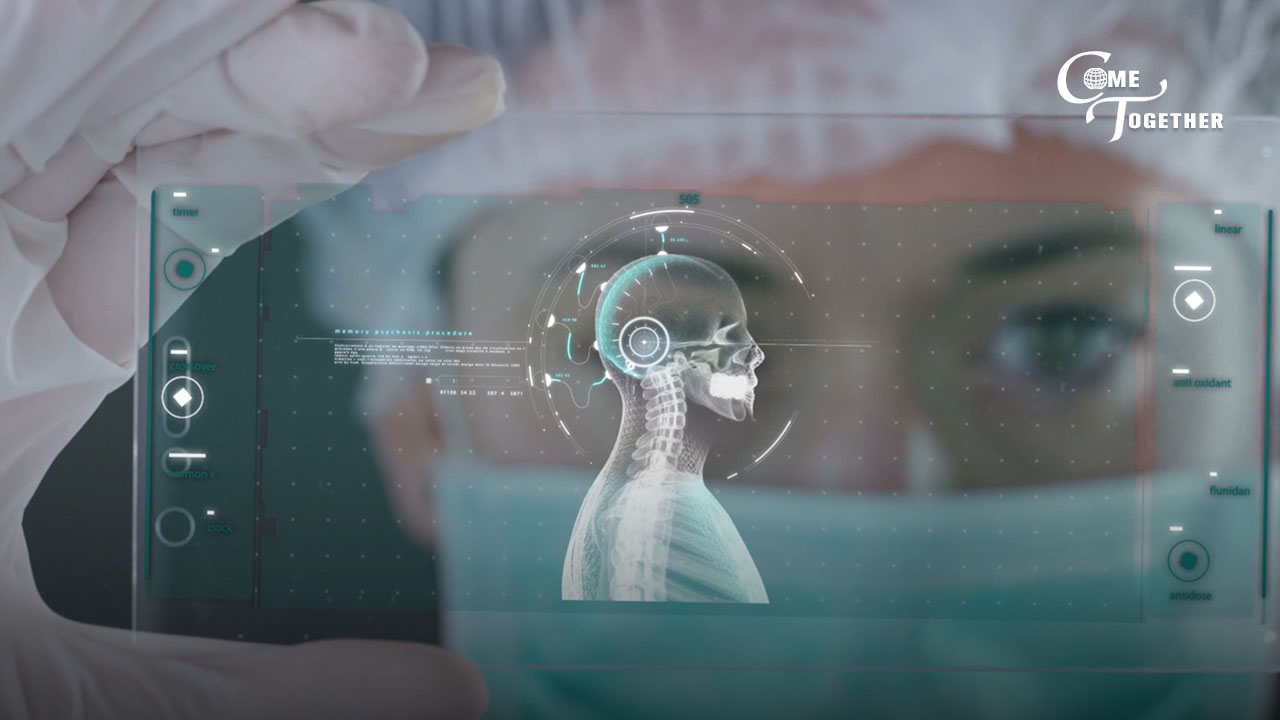04:13

Editor's note: November 10 marks World Science Day for Peace and Development. In this episode of "Come Together" series, CGTN looks at fighting cancer via big data.
What is cancer? Why are more and more people getting cancer nowadays? Are we doomed to die once we are diagnosed with cancer?
"My father was diagnosed with cancer when I was in college in the U.S.," Winnie Qiu, a startup founder based in Shanghai, told CGTN.

Winnie Qiu, a startup founder based in Shanghai, hopes to cure cancer with the help of big data. /CGTN Photo
Winnie Qiu, a startup founder based in Shanghai, hopes to cure cancer with the help of big data. /CGTN Photo
Qiu has witnessed three family members and friends suffer from cancer and die from it.
"I was hoping that a database in China were available to better learn about my father's condition. So I decided to come back to do something for lung cancer patients, and other cancer patients," Qiu said.
The wish of Winnie Qiu represents cancer patients and also their families. The word "cancer" is an umbrella term that includes hundreds of different malignant tumors arising from the Epithelial tissue in the human body.
Statistics show that about 18.1 million new cancer cases and 9.6 million cancer-related deaths were reported globally in 2018. Each day, some 50,000 people are diagnosed with cancer and 26,000 patients die from the disease.
Currently, cancer accounts for nearly one-sixth of deaths around the world, and it will become the global No.1 killer by the end of this century. Due to the low cure rate of cancer, cancer patients all over the world are expecting new treatments, and communities around the world are resorting to a new strategy: big data.
"Because the amounts of information are so large, we need special computing techniques to put together this information, to create a sort of artificial intelligence that then tells us what to do about a particular patient of cancer," Dr. Richard Epstein, medical director at Beijing-based United Family New Hope Oncology Center, told CGTN.
To put it simply, big data for cancer research is based on artificial intelligence (AI) and it incorporates an enormous amount of a patient's information. It gathers a patient's data, analyzes it with algorithms, and provides clinical suggestions for doctors.
"The database is open to the public so doctors and researchers around the world can all get access to it," said Dr. Wu Fengying, professor at Shanghai Pulmonary Hospital Affiliated with Tongji University.

A doctor provides consultation to a patient in Beijing. /CGTN Photo
A doctor provides consultation to a patient in Beijing. /CGTN Photo
With the help of big data, doctors, who traditionally rely on their own judgment, can make better-informed decisions and patients can receive more personalized treatment.
"According to statistics from abroad, the five-year survival rate for lung cancer patients receiving immunotherapy is 16 percent," said Dr. Wu. "As we have just started immunotherapy in China for two years, the survival rate is not yet available, but I believe it will be much higher than before."
The United States began collecting data on cancer cases in 1973 and their data collection gradually became automatic. According to the Global Action Plan for the Prevention and Control of Non-Communicable Diseases 2013-2020, the World Health Organization aims for a 25-percent reduction in mortality from cancer by 2025, and the establishment of a worldwide collaborative network for cancer control.
"Many of my peers attend international medical conferences to communicate with foreign counterparts. The achievements we've made are well received," Dr. Zhu Gang, professor of urology at Peking University, told CGTN.
On May 24, 2018, the Chinese Health Information and Big Data Association launched a national key research and development program with the aim of establishing a national big data center for cancer research. It would build up a platform for cancer research to boost international exchange and collaboration.
"China is a very exciting place for this medical informatics use of big data to take place," said Dr. Epstein.